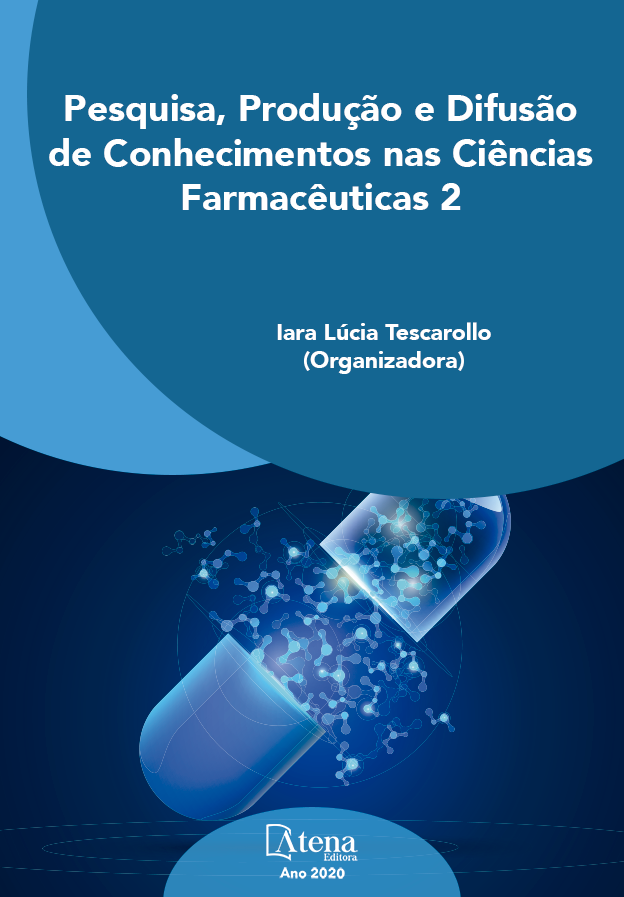
AVALIAÇÃO DA ATIVIDADE NOOTRÓPICA DA QUERCETINA OBTIDA DE ACMELLA CILIATA EM ANIMAIS COM ALZHEIMER POR STREPTOZOTOCINA
A Doença de Alzheimer (DA) é uma desordem neurodegenerativa ainda sem cura cujo tratamento é baseado no uso de anticonilesterásicos, os quais exibem uma série de efeitos adversos, além de ser paliativo, induzindo muitas vezes a não adesão ao tratamento. A busca por novas moléculas com potencial anti-alzheimer é frequente no mundo inteiro. O Objetivo deste estudo foi avaliar os efeitos da quercetina, um flavonoide obtido da planta Acmella ciliata, sobre os déficits cognitivos em camundongos (25-30g 3 meses/n=10) submetidos a DA experimental. Foram utilizados camundongos Swiss, submetidos ao modelo de DA induzida quimicamente por estreptozotocina (STZ/2,5mg/mL) administrada pela via intracerebroventricular (i.c.v) em duas doses. Os animais foram divididos em 5 grupos distintos:G1-STZ/veículo, G2-STZ/Quercetina 30mg/kg, G3/STZ/Rivastigmina 0,5mg/kg, G4/SHAM (falsos operados) e G5/NAIVE (animais normais, sem intervenção). Os tratamentos foram feitos por 15 dias. Os grupos foram submetidos a testes comportamentais como o teste do campo aberto (TCA), para avaliação de deambulação, e testes de memória como o teste de reconhecimento de objetos (TRO) e esquiva inibitória (TEI). Os resultados demonstraram que o tratamento com a quercetina promoveu de forma significativa a reversão dos déficits de memória induzidos pela STZ quando comparado ao grupo controle, nos dois testes de memória. Também mostraram que não houve alterações significativas entre os grupos nos testes de deambulação. Os resultados obtidos corroboram com resultados da literatura sobre os efeitos nootrópicos da quercetina no que tange a reversão dos déficits cognitivos em animais com DA, induzida por STZ ou outros indutores, e apontam o potencial terapêutico do composto na terapêutica do Alzheimer.
AVALIAÇÃO DA ATIVIDADE NOOTRÓPICA DA QUERCETINA OBTIDA DE ACMELLA CILIATA EM ANIMAIS COM ALZHEIMER POR STREPTOZOTOCINA
-
DOI: 10.22533/at.ed.6482020113
-
Palavras-chave: Quercetina, Alzheimer, Estreptozotocina, Flavonoide, Acmella ciliata
-
Keywords: Quercetin, Alzheimer, Streptozotocin, Flavonoid, Acmella ciliata
-
Abstract:
Alzheimer's disease (AD) is a neurodegenerative disorder that has no cure. It’s treatment is based on the use of anticholinesterase inhibitors, which exhibit a series of adverse effects, in addition to being palliative, often inducing non-adherence to treatment. The search for new molecules with anti-alzheimer's potential is frequent worldwide. The aim of this study was to evaluate the effects of quercetin, a flavonoid obtained from the plant Acmella ciliata, on cognitive deficits in mice (25-30g 3 months/n = 10) submitted to experimental AD. Swiss mice were used, submitted to chemically induced intracerebroventricular (i.c.v) streptozotocin (STZ) DA model (STZ/2.5mg/mL) in two doses. The animals were divided into 5 groups: G1-STZ/vehicle, G2-STZ/Quercetin 30mg/kg, G3/STZ/Rivastigmine 0.5mg/kg, G4/SHAM (false operated) and G5/NAIVE (normal animals, with no intervention). The treatments were done for 15 days. The groups were subjected to behavioral tests such as the open field test (TCA), to evaluate ambulation, and memory tests such as the object recognition test (TRO) and inhibitory avoidance (TEI). The results showed that treatment with quercetin significantly promoted the reversal of memory deficits induced by STZ when compared to the control group, in both memory tests. They also showed that there were no significant changes between the groups in the ambulation tests. The results obtained corroborate with literature on the nootropic effects of quercetin with regard to the reversal of cognitive deficits in animals with AD, induced by STZ or other inducers, and point out the compound's therapeutic potential in Alzheimer's therapy.
-
Número de páginas: 17
- Bruno Zipperer Surkamp
- Felipe Arão Nunes
- Maique Weber Biavatti
- Narjara Silveira
- Márcia Maria de Souza
- Mateus Henrique Hornburg de Paula


